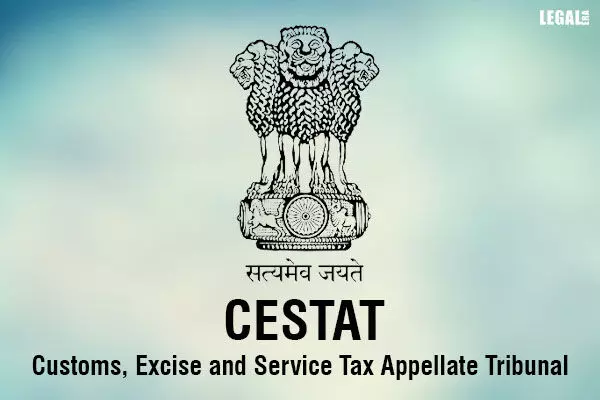- Home
- News
- Articles+
- Aerospace
- Artificial Intelligence
- Agriculture
- Alternate Dispute Resolution
- Arbitration & Mediation
- Banking and Finance
- Bankruptcy
- Book Review
- Bribery & Corruption
- Commercial Litigation
- Competition Law
- Conference Reports
- Consumer Products
- Contract
- Corporate Governance
- Corporate Law
- Covid-19
- Cryptocurrency
- Cybersecurity
- Data Protection
- Defence
- Digital Economy
- E-commerce
- Employment Law
- Energy and Natural Resources
- Entertainment and Sports Law
- Environmental Law
- Environmental, Social, and Governance
- Foreign Direct Investment
- Food and Beverage
- Gaming
- Health Care
- IBC Diaries
- In Focus
- Inclusion & Diversity
- Insurance Law
- Intellectual Property
- International Law
- IP & Tech Era
- Know the Law
- Labour Laws
- Law & Policy and Regulation
- Litigation
- Litigation Funding
- Manufacturing
- Mergers & Acquisitions
- NFTs
- Privacy
- Private Equity
- Project Finance
- Real Estate
- Risk and Compliance
- Student Corner
- Take On Board
- Tax
- Technology Media and Telecom
- Tributes
- Viewpoint
- Zoom In
- Law Firms
- In-House
- Rankings
- E-Magazine
- Legal Era TV
- Events
- Middle East
- Africa
- News
- Articles
- Aerospace
- Artificial Intelligence
- Agriculture
- Alternate Dispute Resolution
- Arbitration & Mediation
- Banking and Finance
- Bankruptcy
- Book Review
- Bribery & Corruption
- Commercial Litigation
- Competition Law
- Conference Reports
- Consumer Products
- Contract
- Corporate Governance
- Corporate Law
- Covid-19
- Cryptocurrency
- Cybersecurity
- Data Protection
- Defence
- Digital Economy
- E-commerce
- Employment Law
- Energy and Natural Resources
- Entertainment and Sports Law
- Environmental Law
- Environmental, Social, and Governance
- Foreign Direct Investment
- Food and Beverage
- Gaming
- Health Care
- IBC Diaries
- In Focus
- Inclusion & Diversity
- Insurance Law
- Intellectual Property
- International Law
- IP & Tech Era
- Know the Law
- Labour Laws
- Law & Policy and Regulation
- Litigation
- Litigation Funding
- Manufacturing
- Mergers & Acquisitions
- NFTs
- Privacy
- Private Equity
- Project Finance
- Real Estate
- Risk and Compliance
- Student Corner
- Take On Board
- Tax
- Technology Media and Telecom
- Tributes
- Viewpoint
- Zoom In
- Law Firms
- In-House
- Rankings
- E-Magazine
- Legal Era TV
- Events
- Middle East
- Africa
CESTAT: Service Tax Not Payable On Construction Before 2010 And Having Less Than 12 Flats

CESTAT: Service Tax Not Payable On Construction Before 2010 And Having Less Than 12 Flats
The tribunal stated the revenue department erred and the assessee was entitled to a refund
The Chennai bench of the Customs, Excise, and Service Tax Appellate Tribunal (CESTAT) has held that there is no tax liability on the appellant for the impugned flats constructed prior to 01.07.2010, having less than 12 units or flats.
The bench of P Dinesha (judicial member) and M Ajit Kumar (technical member) observed that only four residential units were constructed. Therefore, the case was not under the definition of residential units.
It noted the 02.05.2008 development agreement between the appellant and the developer for the construction of a residential complex, for which Rs.29,31,752 was paid to the developer towards service tax. Believing there was no tax liability, the appellant filed a refund application claiming a refund of the service tax paid. It resulted in the issuance of a show-cause notice by the revenue department.
On adjudication, the authority rejected the refund claim. As per the original authority, the service tax was paid towards the work contract service provided by the developer, which was in order.
Thereafter, the appellant approached the first appellate authority, which rejected the appeal by upholding the order of rejection. In the appeal order, the first appellate authority held that the appellant was a recipient of service; the construction activity was started by the developer on 31.5.2013 and the invoice was raised on 24.9.2015. Therefore, as per the rules, the service was provided after 01.07.2012. The invoice issued by the developer showed that the state Value Added Tax (VAT) was also paid, and the service tax was paid at the applicable rate of the service contract.
Thus, the first appellate authority stated that the claim of the appellant that the construction carried out by the developer fell under residential complex service, as the number of units was less than 12, did not merit.
The plan approval was obtained on 04.03.2013, and the construction commenced on 31.06.2013. The 2013 explanation inserted in the tax works contract service effective 01.07.2010 applied to the appellant. It was against this order that the present appeal was preferred by the taxpayer.
The appellant contended that the definition of residential complex was not satisfied since less than 12 units were constructed. Even otherwise, the construction of residential units was intended for personal use. Thus, as per the clarification of CBEC circular No.108/2/2009-ST, the construction fell within the exclusion portion of the definition of a residential complex as defined under Section 65(91)(a) of the Finance Act 1994.
The CESTAT held that there was no tax liability on the appellant for the impugned flats having less than 12 units and the department erred. Therefore, the appellant was entitled to a refund.



